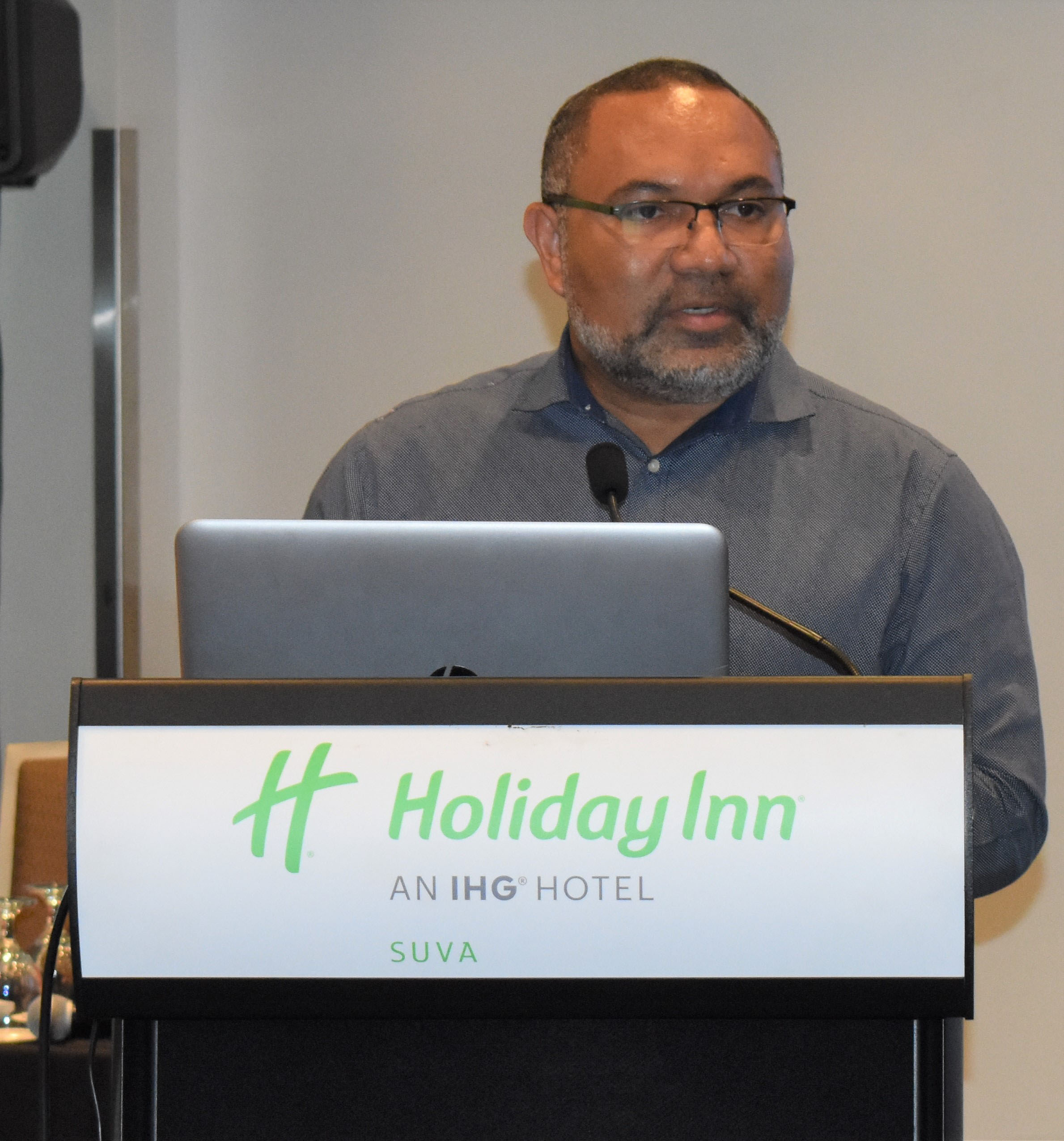
The Fiji National University’s (FNU) College of Medicine, Nursing and Health Sciences (CMNHS) launched a five-year strategic plan for the Fiji Institute of Pacific Health Research (FIPHR) today.
The plan is an effort to generate various health evidence for Fiji and Pacific Island nations and consequently, develop healthier communities.
While launching the Strategic Plan at the Holiday Inn in Suva, Dean CMNHS, Dr William May, said this was a significant milestone for the College.
“The College has an extremely important role to play in the development of health research for Fiji and the Pacific Islands given its historical beginnings as the Fiji School of Medicine, which was originally established in 1885,” Dr May said.
“It has been educating health care professionals across the region since its establishment and continues to provide training in most health science disciplines including medicine, dentistry, pharmacy, physiotherapy, radiography, laboratory technology, public health, health services management, dietetics and environmental health.”
“This document sets the platform for further expansion, greater research and innovation achievements while positioning the College for a more prominent role as a national and regional advisor and resource point on key health development challenges.”
Dr May said the strategic plan 2020-2025 would focus on knowledge creation, exchange, integration and application through research, as well as innovation and research capacity needed to address various health issues affecting Pacific peoples, and inform the region’s health outcomes in the future.
“We also intend to produce graduates and research that embraces and supports a unified vision of health in the Pacific Islands in light of the special geographical, social, economic and health features specific to island nations and territories,” Dr May highlighted.
While providing a summary, CMNHS Associate Dean Research, Dr Donald Wilson, said the plan outlines four research priority goals to research nine strategic research themes that were identified as priority areas for FIPHR in a stakeholder consultation process.
These include:
• Non-Communicable Diseases, Food and Nutrition Security & Post-modernism;
• Communicable Diseases, Mobile Populations and the Environment;
• Reproductive Maternal Neonatal Child & Adolescent Health, Sexuality and Vulnerable Populations;
• Mental Health, Recreational Drugs, Suicide, Alcohol and Stigma;
• Climate Change, Environmental and Global Health;
• Health Systems, Policy, Economics, Inequality, Poverty, Private and Public Partnerships & Governance;
• Injuries and Disability, Rehabilitation, Oral and Occupational Health;
• Social Behaviours, Indigenous Health, Spirituality and Alternative Medicines; and
• Medical Education.
Dr Wilson also noted that FIPHR would also undertake the administration and execution of the Higher Degree by Research (HDR) programmes.
“Higher Degree by Research (HDR) is increasingly becoming an important way to differentiate general degrees in the employment marketplace. Global recognition is also associated with HDR.”
“HDR allows students undertaking the programme, the scientific freedom by immersing in their particular area of real interest apart from setting and managing their research,” Dr Wilson added.
FIPHR is comprised of Research Centres (RC), a Research Training, Ethics and Data Repository and an administration arm.
The RCs include:
– Pacific Research Centre for the Prevention of Obesity and NCDs (C-POND, a WHO Collaborating Centre for Obesity Prevention and Management);
– Pacific Sexual Reproductive and Health Research Centre (PACS-RHRC);
– Centre for Health Information, Policies and Systems Research (CHIPS-R);
– Communicable Diseases Research Centre (CDRC);
– Climate Change and Health Research Centre (CCHRC)
– Medical Education Research Centre (MERC)
FIPHR also administers externally-funded major research projects such as the RISE (Revitalisation of Informal Settlements and their Environments) and WISH (Watershed Interventions for Systems Health) projects.

CMNHS Associate Dean Research, Dr Donald Wilson.